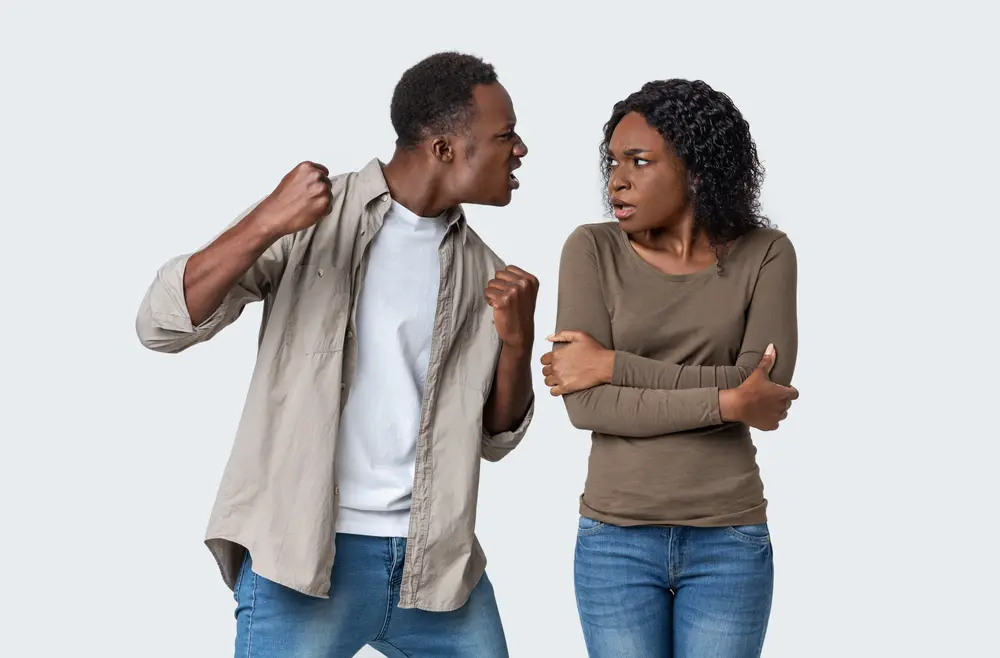Recognizing signs of abuse in a relationship, especially from a spouse or boyfriend, presents a daunting challenge due to its intricate dynamics. Despite the unmistakable presence of red flags, individuals often struggle to acknowledge them, choosing instead to overlook or downplay their importance.
In this article, we delve into the intricate psychological factors underlying this tendency, aiming to illuminate why victims frequently turn a blind eye or deny the harsh reality of abuse within their intimate relationships. Understanding these complexities is crucial in fostering awareness and support systems that empower individuals to break free from abusive situations and reclaim their autonomy and well-being.
Recognizing the Signs of Abuse
Before delving into the reasons behind ignoring signs of abuse, it’s crucial to understand what constitutes abusive behavior. Abuse can manifest in various forms, including physical, emotional, verbal, sexual, and financial. Common signs may include controlling behavior, manipulation, isolation from friends and family, belittling remarks, threats, intimidation, and physical violence. It’s essential to recognize these signs and take them seriously, as they can escalate over time and have severe consequences for the victim’s well-being.
Psychological Conditioning
One reason individuals may ignore signs of abuse is psychological conditioning. Abusers often employ tactics such as gaslighting, where they manipulate the victim’s perception of reality, making them doubt their own experiences and feelings. Over time, this can lead to confusion and self-doubt, making it easier for the victim to dismiss or rationalize abusive behavior. Additionally, victims may have been exposed to abuse in their past or witnessed it in their family, normalizing such behavior and making it harder to recognize as abuse.
Fear and Dependency
Fear plays a significant role in why individuals stay in abusive relationships and ignore warning signs. Victims may fear retaliation from their abuser, whether it be physical harm or further emotional manipulation. Additionally, abusers often use tactics to instill fear and dependency in their victims, making them believe they are incapable of leaving or surviving on their own. Financial dependence, lack of social support, and cultural or religious beliefs can further exacerbate this sense of dependency, trapping victims in the cycle of abuse.
Emotional Investment and Denial
Another factor that contributes to ignoring signs of abuse is emotional investment in the relationship. Despite the presence of abusive behavior, victims may still harbor feelings of love, attachment, or hope for change, making it challenging to acknowledge the reality of the situation. Denial can also play a role, as victims may subconsciously minimize or rationalize the abuse in order to preserve their perception of the relationship and avoid confronting painful truths.
Societal Stigma and Shame
Societal stigma surrounding abuse can also prevent victims from acknowledging or seeking help for their situation. There may be shame associated with being a victim of abuse, leading individuals to internalize feelings of guilt or inadequacy. Fear of judgment or disbelief from others may further deter victims from speaking out or seeking support, perpetuating the cycle of silence and isolation.
Conclusion
In conclusion, ignoring signs of abuse within a relationship is a multifaceted phenomenon shaped by psychological, emotional, and societal factors. To combat this issue effectively, it’s imperative for individuals to educate themselves on the warning signs of abuse and to foster a deeper understanding of the barriers that hinder victims from seeking help.
By promoting awareness, offering unwavering support, and dismantling the cycle of silence, we can empower individuals to acknowledge their intrinsic worth, prioritize their safety, and access the resources needed to extricate themselves from abusive relationships. It is only through collective action and unwavering advocacy that we can create a culture of accountability and support, where survivors feel empowered to speak out, seek help, and ultimately break free from the chains of abuse. Let us stand together in solidarity to amplify survivors’ voices, challenge societal norms, and pave the way for a future where love is synonymous with respect, dignity, and empowerment.
This story was created using AI technology.















